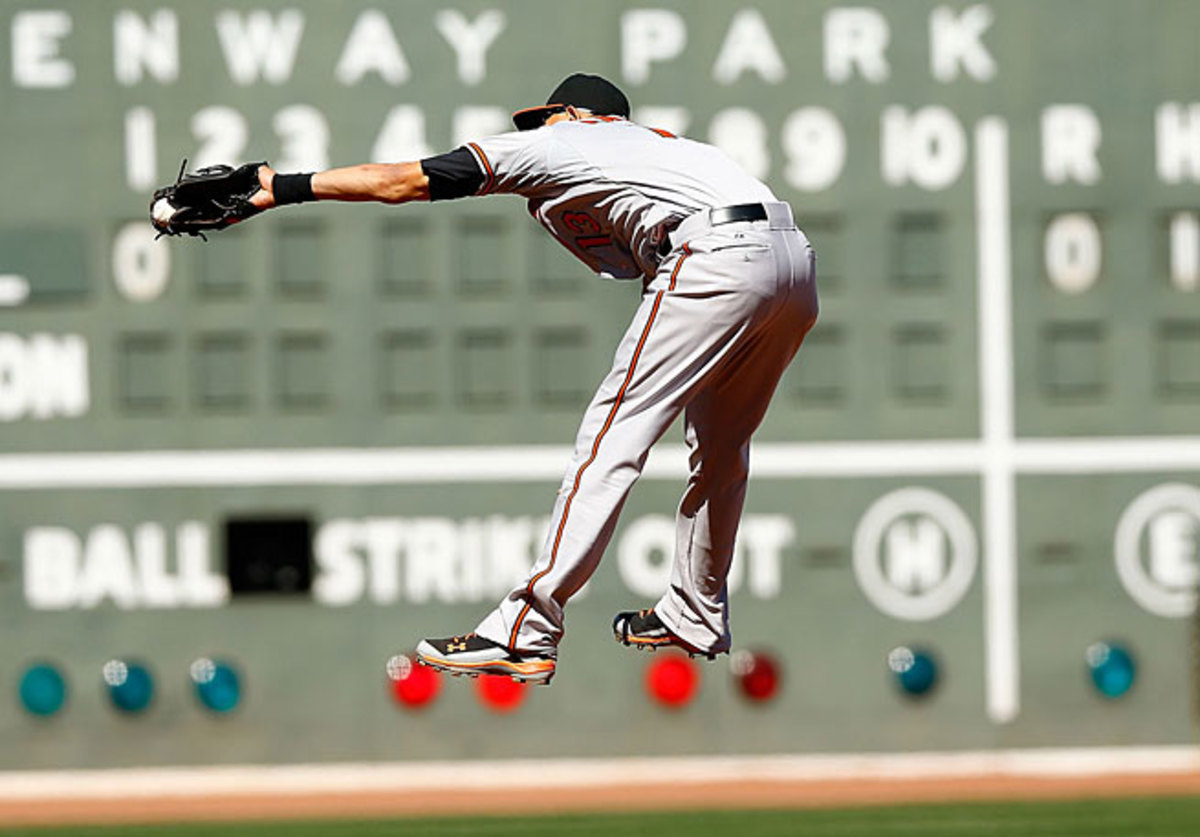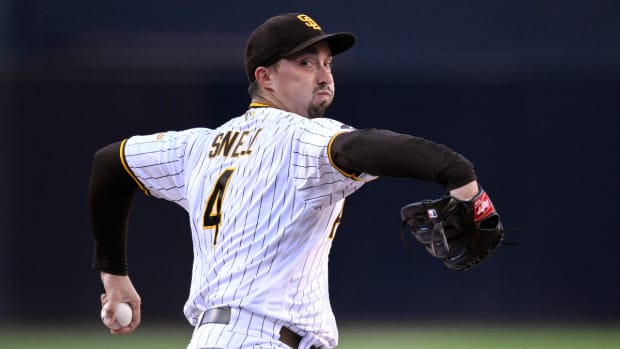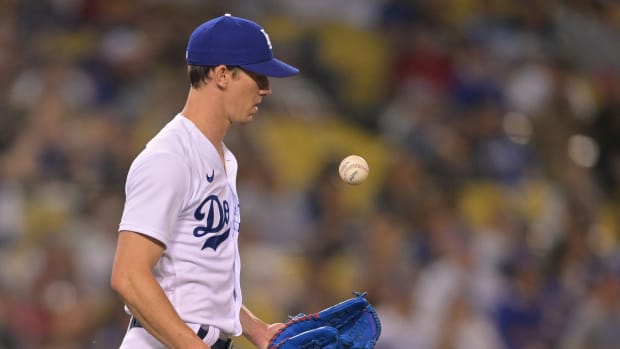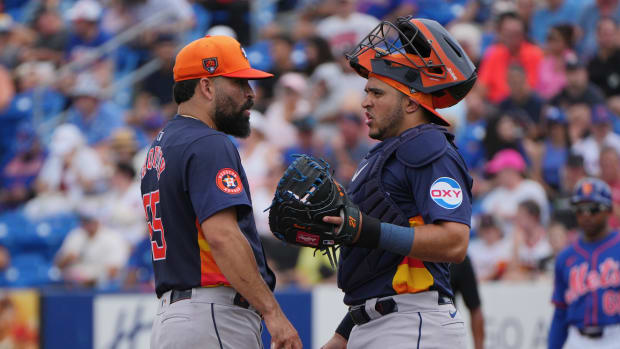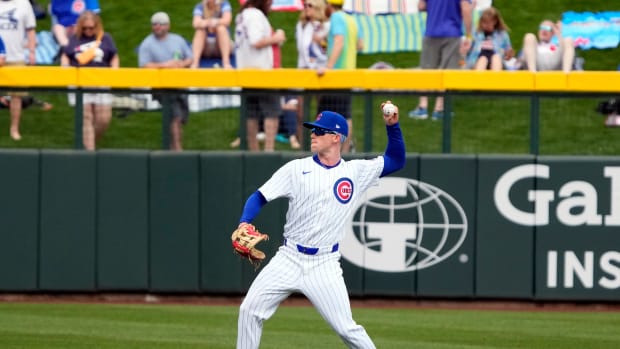Machado arrives as a superstar, joining list of studs at 3B in AL

Manny Machado's defense has been stellar, even though he only moved to third base last summer.
Jared Wickerham/Getty Images
It's time. It's time to put Manny Machado into the upper echelon of third basemen, time to enter him into the conversation of the Best Young Player in Baseball, time to at least consider the possibility that he may go on to have a better career than of any under-25 player in the game -- yes, better, perhaps, than Bryce Harper and Mike Trout.
One afternoon last month, Orioles third base coach Bobby Dickerson was on the field at Camden Yards talking about the kid that he took under his wing less than a year ago at Double-A Bowie. "When you start comparing Manny to every third basemen and talk about the upper echelon guys, no question he's up there defensively," said Dickerson, who was assigned to work with Machado at third base before his major league arrival. "We always knew he would catch the ball. As far as his bat, we knew that would come, but it would take some time."
This was the afternoon of April 19. Machado was already playing spectacular defense, making plays like this, but even Dickerson could not foresee what would happen next. Since that afternoon, Machado has hit.380/.415/.620 with four home runs and collected more hits (38) than any player in the majors. (The Orioles, not coincidentally, are 15-8 since April 19.) On Friday, Machado had the go-ahead hit in the 10th inning of the Orioles' rousing comeback win over the Twins. On Sunday, he had his third-straight three-hit game, raising his average to .331. The baby-faced 20-year-old who three years ago was a high school senior at Brito Miami Private School has bloomed into an impact hitter, and when you add that to his already elite glove? "Superstar," says a scout. "Not future superstar. Superstar, now."
Consider the wealth of talent now at third base in the American League -- it's the most stacked position in the league. Miguel Cabrera, hitting .379 entering this week (and on pace for, what, 300 RBIs?), looks like he's going to make a run at a third-straight batting title (the last man to do so was Tony Gwynn, who won four straight in the National League from 1994-'97). Evan Longoria is raking to the tune of .333/.403/.610 with nine homers, and he'll be in this year's AL MVP discussion as well. Adrian Beltre is having a typical Adrian Beltre year, playing Gold Glove caliber defense and hitting for power (eight homers). Two underrated third basemen from the West, Oakland's John Donaldson and Seattle's Kyle Seager, are blossoming, too.
But so far 2013 belongs to Machado, who doesn't turn 21 until July. "He's special," says Dan Duquette, the Orioles general manager who made the boldest move of 2012 by calling Machado up from the minors last August "even though [Machado] was hitting .250 with 15 errors, but we were hearing from everyone that he was better than what the numbers said," says Dickerson. The moment that Duquette knew Machado was going to be a star? It was the night of The Pump Fake -- the night last September when Machado fooled Rays pinch-runner Rich Thompson (and everyone in the ballpark) with his now legendary fakeout to first. "What a play," says Duquette. "That one play kind of showed you everything."
The moment Dickerson knew Machado was going to be a star? It was last summer, after Dickerson -- then the minor league infield coordinator -- had gotten a call from the Orioles asking him to start working with Machado at third base.
"The thing is, we didn't want Manny know that this was serious," says Dickerson. "We didn't want him, or anyone, thinking that we were thinking about making this move to put him at third base, because we knew that it could end just like that."
Before the stadium gates would open to fans, Dickerson would ask Machado to take some grounders at third with the other infielders.
"This was just a way for us to give us a little look," says Dickerson, "He could have been like, 'Man, I'm a shortstop. I'm goofing around.' But he came out every day to show that he was the best one out there. He was determined to be the best. That's when I started to see how special this kid was."
Machado is so good at the position because of his arm -- his high school coach, Lazaro Fundora, who says Machado had a 93 mph fastball and sometimes used him as his closer in high school) -- and his wingspan, which allows him to have what Dickerson calls a greater "range outside his body. His natural movements and his footwork were immediate; when you're a shortstop there's a lot of coming to the ball, a lot of sharper angles. At third base the angles are deeper, and he caught that early on -- he understood how to create angles to make a play on the ball. By no means is he a finished product, but he's determined to be the best."
It was Fundora who knew before anyone else that Machado would be a star. Fundora began hearing the Alex Rodriguez comparisons during Machado's junior year in high school and was there for all of Machado's jaw-dropping BP sessions in Miami. "The kid has power, and it's going to come," he says. Fundora loves telling the story of the time scouts showed up unannounced to a practice at the high school. Fundora stopped practice, Machado grabbed a bat, strolled to the plate "and started parking balls over the fence," says the coach, chuckling at the memory. "People have been talking about his defense, but what they don't realize is that he's going to be an even better hitter."
And now, it seems, Machado's bat has arrived, sooner than expected. And that is a very scary thought for the rest of the American League.






























